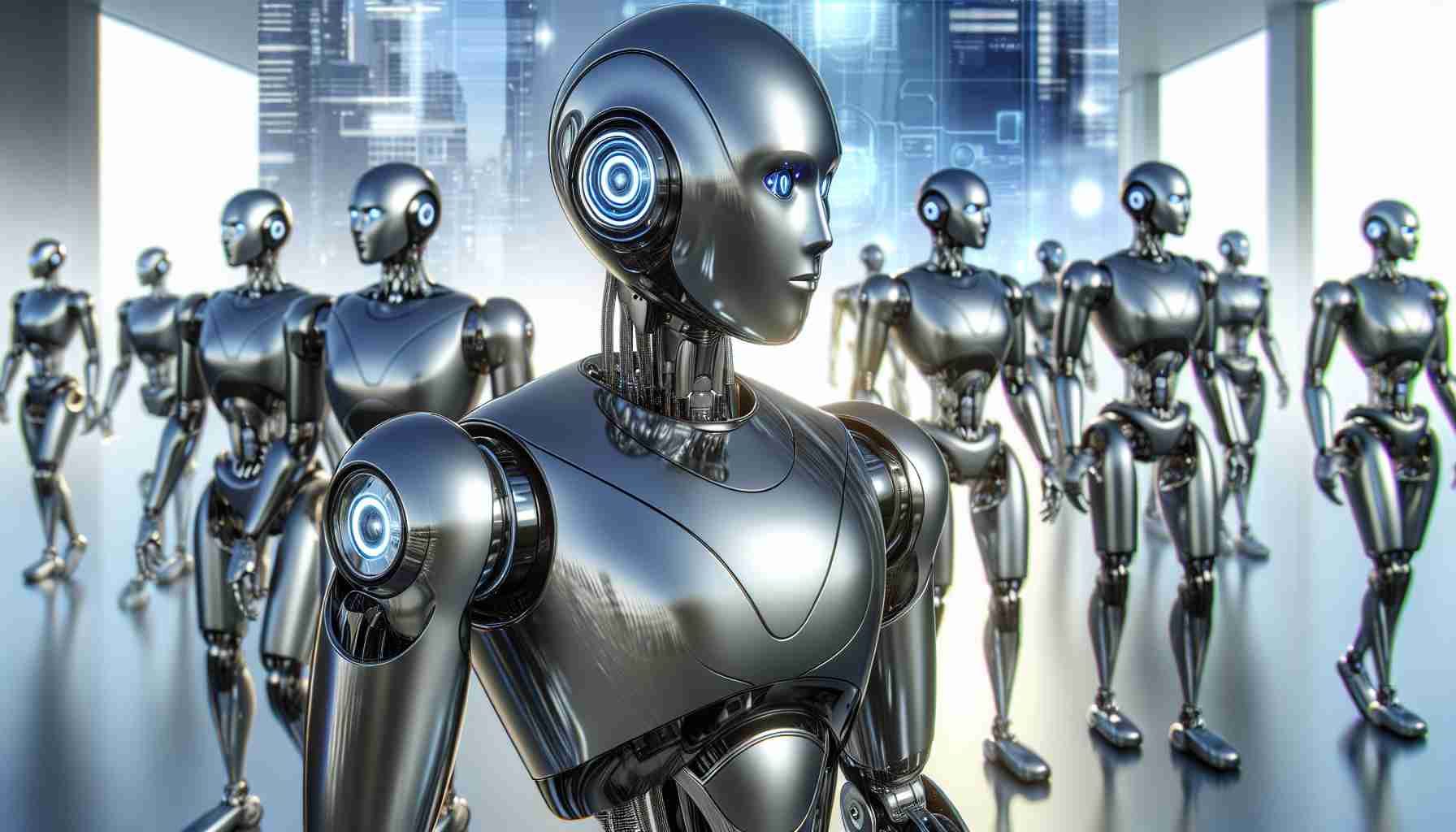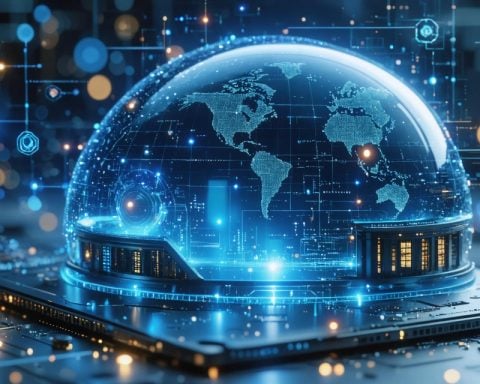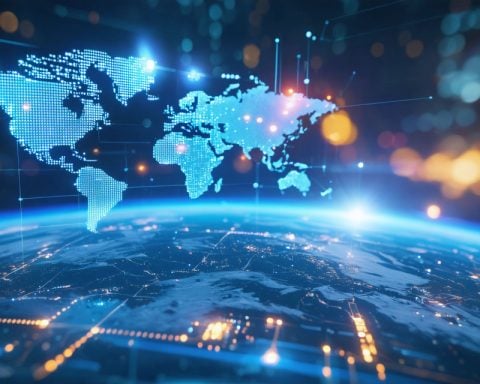In a groundbreaking move towards the future of automation, Tesla is making significant strides with its highly-anticipated humanoid robot, known as the Tesla Bot. This development marks a significant shift in Tesla’s broader ambition to revolutionize artificial intelligence and robotics, going beyond electric vehicles to reshape everyday life.
What makes the Tesla Bot unique? Tesla is leveraging its advanced AI technology, perfected over years of developing driver-assistance systems for its cars, to create a robot capable of performing mundane household chores. Standing at approximately 5 feet 8 inches and weighing around 125 pounds, the robot is designed to navigate a world built for humans. Equipped with cameras and sensors akin to Tesla’s self-driving vehicles, it brings a level of efficiency and safety aimed at making our lives easier.
The buzz around personalization: A standout feature of the Tesla Bot is its potential for personalization. Tesla’s philosophy emphasizes user-focused design, and the robot aims to learn from its users’ habits and preferences, adapting to become a truly personalized assistant. Imagine a future where your home robot pours your morning coffee just the way you like it or manages your home’s energy consumption while you’re away.
A glimpse into future possibilities: While the development is still in its early stages, Tesla’s step into robotics raises fascinating questions about human-robot interaction and the boundaries of AI technology. Could this be the dawn of a new era where humanoid robots become fixtures in households worldwide? As we watch Tesla’s journey, it’s clear that the future laid out by Elon Musk is anything but ordinary.
The Advent of the Tesla Bot: Shaping the Future of Robotics and Humanity
The deployment of the Tesla Bot signifies not only a leap in robotics innovation but also prompts a deeper examination of its impending impact on the environment, humanity, and the global economy. As Tesla endeavors to integrate advanced artificial intelligence into daily life, the ramifications of humanoid robots in our world are substantial and multifaceted.
Environmental Impact: The Tesla Bot’s introduction highlights a potential for environmental benefits due to its energy-efficient design and capabilities. Like Tesla’s commitment to sustainable energy evident in its vehicles, the company’s robots could lead to reduced energy consumption in households. By optimizing home energy use, such as controlling smart appliances, lighting, and thermostats, these robots could significantly lower energy waste and carbon footprints. A more comprehensive integration with renewable energy sources could further decrease reliance on traditional, polluting energy streams.
Impact on Humanity and Society: With robots capable of performing routine tasks, humanity stands on the verge of a new societal structure. The Tesla Bot could redefine domestic life, offering assistance to the elderly and disabled, thus enhancing their independence and quality of life. This shift might allow individuals to devote more time to creative and intellectual pursuits, potentially sparking a renaissance of innovation and cultural development. However, the conversation must also address new ethical and emotional paradigms as humans increasingly interact with machines that emulate human thought processes and behaviors.
Economic Considerations: From an economic perspective, the introduction of affordable, functional humanoid robots could mirror the disruptive effect of earlier technological advances like computers and the internet. By automating mundane tasks, the Tesla Bot might lead to shifts in labor dynamics, triggering job displacements in certain sectors while simultaneously creating opportunities in tech development, programming, and robotics maintenance. Furthermore, increased productivity and efficiency could accelerate growth in different industries, fostering a new era of economic evolution.
Connectivity to Humanity’s Future: The implications of Tesla’s venture into humanoid robotics extend into the broader future of humanity. As AI and robotics intertwine with daily life, society must navigate these waters carefully, fostering an environment where technology serves as an extension of human capability rather than a replacement. The awe-inspiring possibility of humanoid robots becoming commonplace emphasizes the need to develop robust ethical frameworks, ensuring technology contributes positively to human progress while safeguarding against potential pitfalls.
In conclusion, Tesla’s foray into the realm of humanoid robotics with the Tesla Bot symbolizes more than a technological advancement; it represents a pivotal junction in our journey toward a future deeply intertwined with AI and robotics. This evolution holds promise for a more efficient, equitable, and enriched world, but it also necessitates thoughtful consideration and dialogue about our priorities and values as a global society.
Tesla Bot: Revolutionizing Home Automation and Beyond
The unveiling of the Tesla Bot has sparked a new wave of interest in robotics, promising to transcend traditional home automation by providing a versatile, AI-driven personal assistant. Tesla’s ambition is not just to create another gadget but to foster a seamless integration of technology into everyday living.
Innovative Features and Technologies
Tesla’s extensive experience in developing autonomous systems is prominently featured in the Tesla Bot, particularly with its sophisticated AI and machine learning capabilities. The Tesla Bot is equipped with advanced vision systems, similar to those in Tesla’s self-driving cars, which allow it to recognize objects and navigate complex environments with greater precision. Additionally, the bot is designed to perform a variety of tasks, such as laundry, shopping, and dishwashing, tailored to fit the dynamic needs of users.
Exploring Use Cases and Opportunities
The potential applications of the Tesla Bot extend into various industries beyond household chores. For instance, the healthcare sector could benefit from personalized patient care and assistance with daily activities. In retail, the bot could manage inventory or assist in customer service, enhancing operational efficiency. The scope and adaptability of the Tesla Bot’s AI system mark a significant innovation in how robotics can support diverse market segments.
Security and Sustainability Considerations
Security is a crucial aspect of the Tesla Bot’s design, with built-in systems to ensure data protection and privacy. The bot leverages Tesla’s existing data encryption technologies to safeguard personal information, maintaining user trust. Furthermore, Tesla is committed to sustainability by designing the bot with energy-efficient components, echoing its dedication to eco-friendly technology.
Trends and Market Predictions
As Tesla continues its development, the trend of integrating AI-driven humanoid robots into everyday life is gaining traction. Experts predict a growing demand for personal robots, driven by technological improvements and increasing consumer interest. By 2030, the market for such technologies is expected to expand significantly, with Tesla poised to emerge as a key player in this field.
Comparing Tesla Bot with Other Robotics Technologies
Compared to existing robotics technologies, the Tesla Bot stands out in terms of its user-centric design and advanced AI. While other humanoid robots focus on specific functionalities, Tesla’s approach is more holistic, aiming to provide a comprehensive solution for home automation and personal assistance. This differentiates it from competitors and positions the Tesla Bot as a versatile and adaptive technology.
For more information on Tesla’s innovations, visit the Tesla website. Stay tuned as Tesla continues to redefine the future of robotics and AI, setting new benchmarks for what personal robots can achieve.












